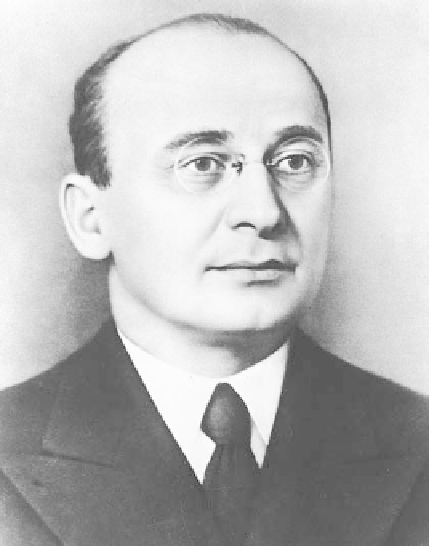Travel Reference
In-Depth Information
very active in the Russian émigré community as
an author, editor, and publisher. Berdiaev was
one of the founders of the influential YMCA
Press in Paris, which published most of the
prominent Russian émigré authors throughout
the Soviet era. During the 1930s his reputation
grew in the West, a result of his prolific writings
on philosophy and books like
The Origins of Rus-
sian Communism
and
On Slavery and Freedom of
Man.
During World War II, he supported the
Soviet government and even took a Soviet pass-
port, but he never returned to his homeland. He
received an honorary doctorate from Oxford
University in 1947, and at the time of his death
in Paris he was the best-known living Russian
philosopher.
Beria, Lavrenty Pavlovich
(1899-1953)
Soviet official
One of the most sinister and feared officials in
Joseph
STALIN
's close circle, Beria ruled as peo-
ple's commissar for internal affairs and head of
the Soviet internal security empire from 1939
until 1953. Beria was born in Georgia, a member
of the Mingrelian ethnic minority. He joined the
BOLSHEVIK
Party in 1917 and, after the civil war,
worked as the director of the Transcaucasian
branches of the secret police (Cheka) and its suc-
cessor, the OGPU. As first secretary of the
COM
-
MUNIST PARTY
in Transcaucasia from 1932 to
1938, he ruled as virtual dictator. In 1938, Stalin
brought him to Moscow and named him com-
missar of internal affairs (NKVD), successor to
Nikolai
YEZHOV
, who had implemented the main
stages of the Great Purge. As commissar, Beria
oversaw the execution of Yezhov and many of
his associates, organized the mass deportations
of non-Russian nationalities in Soviet areas
occupied by the Germans during World War II,
and administered as a personal empire the vast
network of slave labor camps known as the
GULAG
. In 1941 he was appointed deputy prime
minister in charge of security affairs, a position
he held until 1953. Beria is most closely identi-
fied with the unparalleled repressive police state
that characterized the Stalin regime, especially in
Lavrenty Beria
(Library of Congress)
its last decade. He survived Stalin by only a few
months. Fearful of the immense power and
information he had amassed in his career with
the secret police,
KHRUSHCHEV
and
MALENKOV
agreed long enough to direct his arrest in July
1953 on trumped-up charges of “criminal anti-
party and anti-state activities.” He was executed
in December 1953. Sadistic and known for his
lecherous pursuit of young women, Beria occu-
pies a prominent place in the gallery of 20th-
century political thugs. Relief over his execution,
and his personal cowardice in defeat, makes it
hard to assess the extent to which he truly
believed in some of the more liberal policies he
advocated in the second half of 1953.
Bering, Vitus Jonassen
(1681-1741)
explorer and navigator
Danish by birth, Bering entered the Russian
navy as a sub-lieutenant in 1704 and served in


Search WWH ::

Custom Search